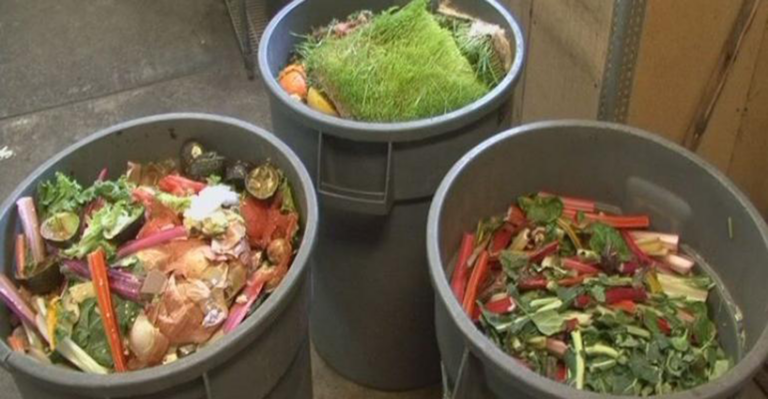
As landfills across the county grow closer and closer to their limits, it is more important than ever that individuals and governments alike are paying attention to the details of their waste and ways to divert it from the landfill.
Focusing on the idea of a circular economy, we know recycling is a huge way we can prevent waste from hitting the dumpsters. Many different cities and state governments offer recycling programs for paper, glass, plastic, and aluminum, but Minneapolis, Minnesota is taking it a step further.
With food waste making up about a quarter of the waste produced in the United States, according to the EPA, it is critical to begin tackling this waste issue at a large scale as much as we have done for traditionally recyclable materials. Believe it or not, Minneapolis is doing just that.
As a means of “recycling” food waste on a large city-sized level, Minneapolis has launched a, thus far, very successful composting program for its 400,000 citizens.
The program functions similarly to the garbage and recycling services most Americans are already accustomed to with curbside pick-up and is already servicing 107,000 households. Offering the service to all of its citizens, those who sign up are provided with informational guides on how to properly collect food waste, as well as compostable bags.
Carts for food waste are provided for restaurants and stores that tend to produce much more compostable material each week.
Food waste left in these carts is collected weekly by contractors who drive semi-automatic cart flipping trucks around the city, and educational tags on left on any cart where an uncompostable material is found. This allows the user to know what they’ve incorrectly included.
The city also offers 20 different compost drop-off centers to allow individual residents or households a place to dump their food waste whenever necessary.
This program has already proved itself extremely successful in diverting food waste from landfills, with over 50 percent of the households in the city participating.
To provide this service, the city has contracted with the private company Specialized Environmental Technologies (SET), for composting. The contract includes 600 tonnes of compost provided to the city for use in community gardens or other public projects, and distribution to citizens at a cheap rate. 500 other tonnes are provided for use in experimental projects and research.
With different citywide educational opportunities and a heavy hand in advertising the service, Minneapolis has proven composting on a wide scale can not only just work but can hold colossal results.